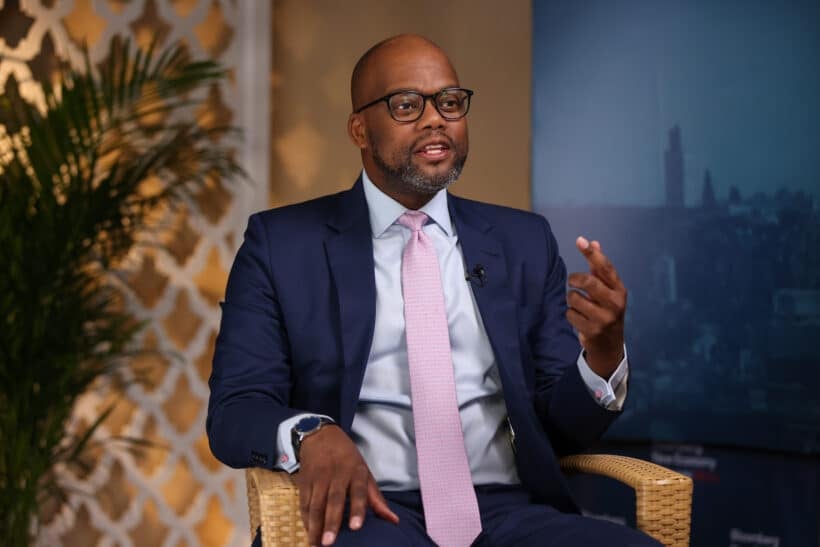
The Secretary General of the African Continental Free Trade Area (AfCFTA) says he is disappointed that South Africa, Africa’s largest economy, has not ratified a payment system intended to cut trade costs and accelerate the economic integration of the continent.
The Pan-African Payment and Settlement System (PAPSS), established in partnership with the African Union, enables companies to transact in any of Africa’s 42 currencies without the need for a third party currency like the U.S. dollar, saving as much as $5 billion annually. Some 115 commercial banks and 15 central banks have joined the system.
“I regret that South Africa has not yet adopted the Pan-African Payment and Settlement System because I think it is a political economy question,’’ AfCFTA Secretary General Wamkele Mene told CNBC Africa. “I must confess, I am surprised that not more countries have joined PAPSS.”
While the question was best answered by the South African Reserve Bank, Mene said the country stood the most to benefit from lowering costs and increasing intra-Africa trade as it had more than 80 percent of manufactured goods trade in Africa.
The Africa Export-Import Bank estimates more than 80 percent of intra-African payments currently go through either Europe or the United States, a legacy of the continent’s colonial history and political and economic dominance of the West over the continent. PAPSS will reduce this reliance while giving Africa autonomy over its trade relations with the rest of the world, Mene said.
“If you look at the cost of a transaction, a trade transaction across regions of the continent, if your goods cost you $500, we charge you $2 to transact on PAPSS. If you use SWIFT, you will pay $60, $70. And it is instantaneous. It is a digital platform, instantaneous. So I think that it is in Africa’s advantage,’’ he said.
The Africa Union launched the Africa Continental Free Trade Agreement in January 2021, the youngest and largest trading bloc in the world seeking to create a common market with a combined gross domestic product of $3.4 trillion that’s projected to grow to $16.5 trillion by 2035, according to the Washington-based World Bank. It’s been ratified by 48 of Africa’s 54 territories. Eritrea is expected to join soon, Mene added.
“I think we have to make that mental shift of not only believing in ourselves as Africans, but also believing in the institutions and the mechanisms that we have introduced,’’ said Mene.
Key participants in PAPSS include central banks, which act as regulators and clearance agents, commercial banks, fintechs, payment service providers and their customers who are made up of the businesses operating across the continent.
Afreximbank says it expects the majority of Africa’s central banks to have joined PAPSS by next year, a key step in its drive to increase intra-African trade to more than 20 percent, the lowest amongst the world’s trading blocs. Intra-European trade sits 68 percent with Asia at 59 percent while Northern America is at 30.6%, according to the UN Trade and Development.
“This question is not just about addressing the trade deficit in Africa, it is also about the sovereignty of the continent of Africa, the payment sovereignty of the African continent,’’ Mene said. “If today you upset somebody in Washington, in London, you will be kicked out of SWIFT and you will not be able to transact with the rest of the world. So it is not just about the issue of easing payments, it is also about the political sovereignty. It is a political economy question.’’

